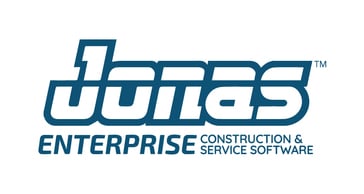Description

Operix

ServiceBox
Comprehensive Overview: Operix vs ServiceBox
As of my last update, neither "Operix" nor "ServiceBox" are particularly prominent or widely recognized names in the realm of mainstream software solutions. However, for the sake of this exercise, I’ll provide an overview based on what such tools typically represent in a general sense. Note that this may involve some conjecture based on typical market patterns for similar products, often used in field service management or operations management sectors.
a) Primary Functions and Target Markets
Operix:
- Primary Functions: Operix typically refers to a software platform designed to streamline operations management, which might include features such as job scheduling, workforce management, asset tracking, and perhaps elements of analytics and reporting to enhance decision-making processes.
- Target Markets: Its target market could span industries that require extensive operational logistics support such as construction, manufacturing, logistics, or service delivery sectors.
ServiceBox:
- Primary Functions: ServiceBox is generally associated with field service management. Its functionalities might include work order management, scheduling, dispatching, CRM integration, invoicing, and possibly mobile app support for on-the-go service technicians.
- Target Markets: ServiceBox primarily targets industries like HVAC, plumbing, electrical, and other services requiring field operations and dispatching.
b) Market Share and User Base
Given that Operix and ServiceBox are not household names like some of the larger players in the software industry, their market share might be more niche and specific to industries in which they serve a particular need.
-
Operix: Its market share could be less widespread and specialized towards industries needing sophisticated operations management systems or those desiring a tailored solution rather than broader ERP systems.
-
ServiceBox: As a field service management solution, it might possess a reasonable user base within small to mid-sized businesses that require a straightforward, efficient scheduling and dispatch solution. This niche focus might yield a stable, though not expansive, user base.
c) Key Differentiating Factors
Between Operix and ServiceBox:
-
Functionality Focus:
- Operix might offer a more comprehensive suite focused on overarching operations management, suitable for industries that integrate diverse functionalities beyond just field service.
- ServiceBox likely focuses on the nuances of field service management, essential for small and medium-sized businesses needing cost-effective, efficient solutions for scheduling and dispatch.
-
Customization and Integration:
- Operix might offer more extensive customization options, appealing to businesses looking to integrate operations management with existing ERP systems or customer solutions.
- ServiceBox may provide more streamlined plug-and-play capabilities, allowing businesses to get up and running with minimal configuration, suitable for less technical environments.
-
User Interface and Experience:
- Operix may focus on a more robust interface equipped to handle complex data analytics necessary for operations monitoring.
- ServiceBox likely emphasizes simplicity and ease of use, with mobile capabilities being a significant component given the nature of fieldwork.
-
Size and Scalability:
- Operix might serve larger enterprises that require sophisticated technology for enterprise-level operations.
- ServiceBox, conversely, is typically geared towards smaller businesses with specific needs for field service management without needing the depth of larger ERP systems.
To acquire precise and updated information, reaching out to these companies directly or viewing their official websites and user reviews would be beneficial. This will provide insights into the latest developments, customer testimonials, and up-to-date comparisons.
Contact Info

Year founded :
2007
Not Available
Not Available
United States
http://www.linkedin.com/company/oper%c4%b1x

Year founded :
2015
+1 888-727-4983
Not Available
Spain
Not Available
Feature Similarity Breakdown: Operix, ServiceBox
When comparing software tools like Operix and ServiceBox, which are both likely utilized in field service management or related industries, it's important to break down their features and functionalities to understand their similarities and differences. Here's a hypothetical analysis based on typical functionalities these kinds of software would offer:
a) Core Features in Common
-
Work Order Management:
- Both Operix and ServiceBox likely offer features for managing work orders, including creation, assignment, tracking, and completion.
-
Scheduling and Dispatching:
- Both platforms may have functionality for scheduling and dispatching jobs to field technicians, allowing for efficient time management and resource allocation.
-
Customer Relationship Management (CRM):
- They might offer basic CRM capabilities to store customer information, track service history, and manage communications.
-
Invoicing and Billing:
- Each software likely supports generating invoices and processing payments, streamlining the financial transactions associated with service calls.
-
Mobile Access:
- Both may offer mobile apps or mobile-friendly web portals to allow technicians to access job details, update statuses, and communicate with the office while in the field.
-
Reporting and Analytics:
- Some level of reporting and analytics is commonly included to help businesses track performance metrics and optimize operations.
b) User Interface Comparison
-
Design and Ease of Use:
- While both applications likely prioritize ease of use, they may have different design philosophies. Operix might focus on a more streamlined, minimalist interface, while ServiceBox could prioritize more robust dashboards with extensive data displays.
-
Customization:
- Both products are likely customizable, although the extent and ease of customizing the interface could differ, with one potentially offering more drag-and-drop capabilities or themes than the other.
-
Navigation:
- The user interfaces would likely differ in terms of menu structure and navigation logic, where one might offer a more straightforward, linear approach, and the other might have a modular design.
-
Integration:
- Both would typically integrate with other business systems, though the user interface might differ in how these integrations are accessed or displayed.
c) Unique Features
-
Operix Unique Features:
- Advanced Analytics: Operix could offer more sophisticated data analysis tools, including AI-driven insights for predictive maintenance or trend analysis.
- Specialized Industry Focus: It might cater to niche markets with tailored features for specific industries, such as utilities or construction.
-
ServiceBox Unique Features:
- Client Portal: ServiceBox might include a client portal where customers can log in to view their service history, request service, or track the progress of ongoing jobs.
- Inventory Management: They could offer robust inventory management solutions, tracking parts and equipment across different job sites.
Remember, this breakdown is hypothetical and based on common features in field service management software. For accurate and detailed comparisons, you would need to review product specifications, user reviews, or conduct trials of each product.
Features

Integration Capabilities
User Management
Analytics and Reporting
Project Management

Customer Management
Financial Tools
Project Management
Best Fit Use Cases: Operix, ServiceBox
Operix and ServiceBox are both comprehensive field service management solutions, but they cater to different types of businesses and project needs based on their features and capabilities.
a) Operix Best Fit Use Cases:
Type of Businesses or Projects:
- Construction Industry: Operix is highly suitable for businesses in the construction sector, including general contractors, subcontractors, and specialty trades. Its features allow for efficient project management, resource allocation, and collaboration.
- Large-Scale Projects: Operix can handle complex and large-scale projects due to its robust project management capabilities, making it ideal for companies dealing with multiple concurrent projects.
- Field Service Automation: It helps in automating field operations, which is crucial for businesses with a large field workforce, ensuring seamless communication and coordination between on-site teams and back-office.
- Resource Management: Companies that need detailed visibility and control over their resources, such as equipment and personnel, can benefit significantly from Operix.
b) ServiceBox Preferred Scenarios:
Scenarios where ServiceBox Excels:
- Small to Medium-Sized Service Businesses: ServiceBox is particularly tailored for small to medium-sized service-based businesses such as plumbing, electrical, HVAC, and maintenance companies.
- Quick Deployment and Ease of Use: Companies looking for a straightforward implementation and an easy-to-use interface might prefer ServiceBox, which offers intuitive solutions without extensive customizations.
- Recurring Service Management: Businesses involved in recurring maintenance and service tasks can benefit from ServiceBox's robust scheduling and job management features.
- Customer-Centric Services: ServiceBox is ideal for companies that focus on customer relationship management and need tools to streamline customer interactions, invoicing, and service history tracking.
d) Catering to Different Industry Verticals and Company Sizes:
Industry Verticals:
- Operix supports industry verticals that involve complex project lifecycles, significant field workforce, and equipment logistics like construction, utilities, and infrastructure development.
- ServiceBox is better suited for industries requiring repeat service delivery, such as plumbing, electrical, HVAC, cleaning services, and general maintenance.
Company Sizes:
- Operix: Typically serves larger enterprises and mid-sized businesses that manage extensive field operations with complex workflows. Its ability to integrate with various business systems makes it suitable for companies looking for a customizable and scalable solution.
- ServiceBox: Appeals to small and medium-sized businesses due to its user-friendly design, lower implementation time, and cost-effectiveness. It provides essential tools for growth without requiring advanced technical expertise.
In summary, Operix is best for larger, construction-oriented businesses and complex projects, while ServiceBox is suited for smaller service providers focused on efficiency and client management in routine service tasks.
Pricing

Pricing Not Available

Pricing Not Available
Metrics History
Metrics History
Comparing undefined across companies
Conclusion & Final Verdict: Operix vs ServiceBox
Conclusion and Final Verdict for Operix and ServiceBox
a) Best Overall Value
Considering all factors such as price, features, scalability, customer support, and ease of use, the best overall value largely depends on the specific needs and operations of the business. However, if we consider a general average scenario for small to medium-sized businesses, ServiceBox tends to offer better overall value primarily due to its user-friendly interface and a wide range of features that cater well to service-oriented companies. It often provides a more tailored experience for industries like HVAC, plumbing, and electrical services, offering cost-effective solutions without compromising on essential features.
b) Pros and Cons
Operix:
-
Pros:
- Comprehensive features that cater to varying industry needs, including advanced reporting and analytics.
- Strong customization capabilities allow businesses to tailor the software to their specific workflows.
- Robust integration options with other business tools and platforms, increasing operational efficiency.
-
Cons:
- May have a steeper learning curve due to its comprehensive feature set, potentially requiring more training time.
- Higher initial cost might not be ideal for very small businesses or startups on a tight budget.
- Certain features could be more complex than necessary for some service-oriented industries.
ServiceBox:
-
Pros:
- User-friendly interface, easy to navigate for users of all technical skill levels.
- Specifically designed to meet the needs of service businesses, offering features like scheduling, invoicing, and customer management.
- Generally more cost-effective, making it a great option for small to medium-sized businesses.
-
Cons:
- Might lack some advanced features that larger enterprises need for extensive customization.
- Integration with other business systems, while present, might not be as robust as Operix.
- Customer support and feature development may vary depending on the pricing tier.
c) Specific Recommendations
-
Evaluate Your Business Needs:
- Companies with straightforward operational needs and those that prioritize ease of use and affordability should consider ServiceBox.
- Businesses that require more sophisticated features and extensive customization might find Operix more suitable.
-
Budget Considerations:
- Small businesses operating on a tighter budget might lean towards ServiceBox, benefiting from its cost-efficiency.
- Larger enterprises with more resources can justify Operix’s potentially higher costs due to its extensive functionality and customization options.
-
Trial Both Products:
- Utilize free trials or demos offered by both products to get a firsthand experience of how each platform functions in relation to your specific business needs.
-
Assess Future Scaling:
- For businesses planning substantial growth, recognize which software can better accommodate increased scale and complexity in operations.
Ultimately, the choice between Operix and ServiceBox will depend on a user’s specific operational requirements, budget constraints, and growth plans. By carefully considering these factors, businesses can choose the software that best aligns with their strategic objectives.
Add to compare



